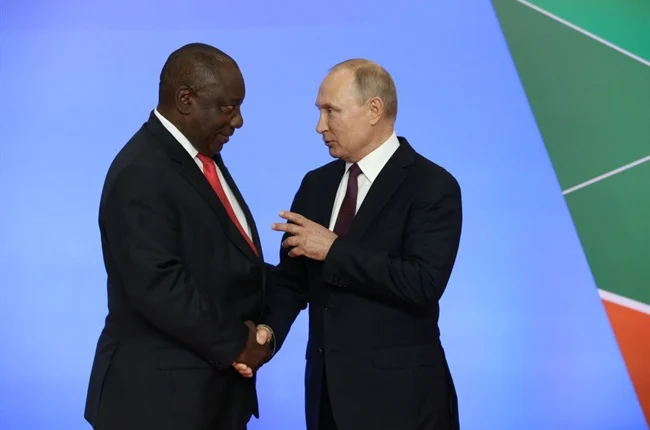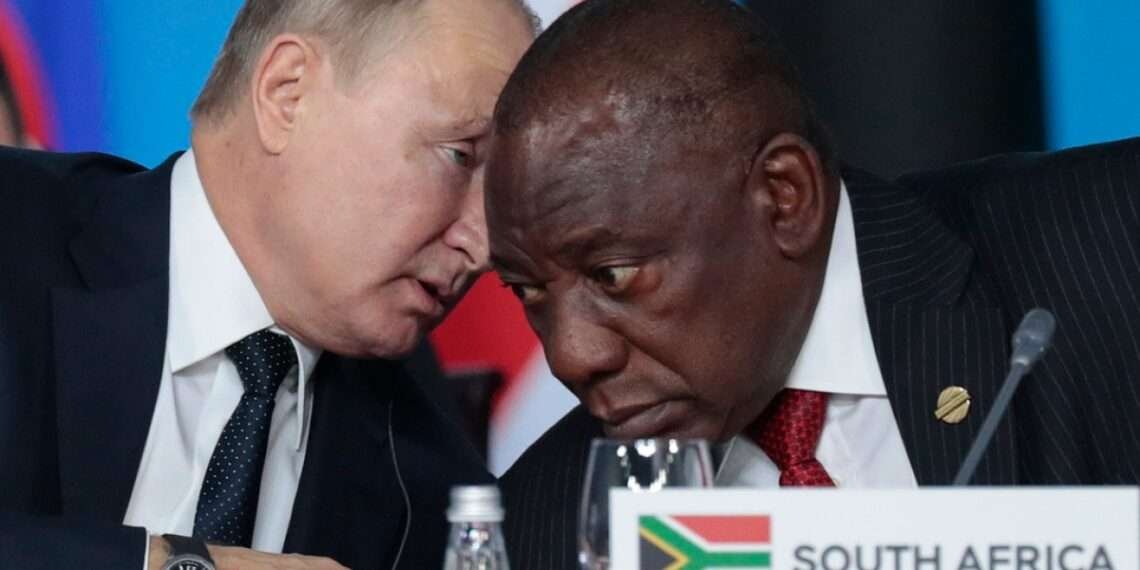The South African government requested an additional three days to respond to the DA’s suit that, it must detain Russian President Vladimir Putin, if and when he enters South Africa.

This occurred in spite of the state’s prior agreement to respond to the DA’s plea, which was reached during a discussion between the parties involved in the suit, and Gauteng High Court Deputy Judge, President Aubrey Ledwaba.
The government’s inability to reply to the Putin arrest case, was reportedly the third instances of the state failing to meet deadlines, and infuriated the opposition party’s legal team.
Elzanne Jonker, the DA’s attorney, responded to a letter the State Attorney sent to the party saying, “Our client will oppose any application for an extension that prejudices the hearing of this matter on July 21, 2023, or affords it any less time than it has already been afforded to file its replying affidavit or heads of argument.”

Following International Criminal Court’s (ICC) arrest order for Putin, the DA filed the lawsuit a month ago to compel the South African government to arrest President Putin, if he steps foot on their soil.
In connection with the suspected illegal expulsion and movement of children from Ukraine’s occupied territory to the Russian Federation during its year-long invasion of Ukraine, the ICC granted an arrest warrant for Putin on March 17.

On the other hand, Kremlin spokesman Dmitry Peskov stated in an interview that, it would be challenging to believe that, anyone would dare carry out the ICC warrant against Putin, and that it was “unthinkable as Russia was one of the largest countries in the world, and one of the biggest nuclear powers.”

However, DA leader John Steenhuisen requested in a suit submitted to the Gauteng High Court in Pretoria in late May that, the government be declared “duty-bound in terms of the Rome Statute and the Implementation Act to arrest President Putin upon his arrival in South Africa.”
According to Steenhuisen, the Implementation Act 27 of 2002 and the Rome Statute both require South Africa as a signatory to the ICC, to “arrest any person for whom the ICC has issued an arrest warrant and requested the arrest and surrender of, if that person enters South Africa’s territory.”
“That obligation applies equally to sitting heads of state. The case law of the ICC, and the Supreme Court of Appeal (SCA) is unambiguous: heads of state do not enjoy immunity from arrest or prosecution for international crimes under either the Rome Statute or South African domestic law.”
DA leader John Steenhuisen.

Moreover, Jonker was advised by State Attorney representative Joseph Sebelemetsa that while President Cyril Ramaphosa, a number of relevant government institutions, and others had previously agreed to file their response to the DA’s appeal, they are now “unlikely” to be able to do so for “practical reasons.”
The president “is engaged in various international commitments that require travel abroad,” according to Sebelemetsa, and “requires more time to engage with and respond to the DA’s application.”
“As you would be aware, numerous government respondents have been cited as respondents in this matter. Wide-ranging consultations are required with a number of government officials from the offices of the cited government respondents. Many of the officials with whom consultation is required are currently unavailable due to prior engagements.”
State Attorney representative Joseph Sebelemetsa.
“I note that this is the third time your clients have failed to comply with a deadline. They were required by the notice of motion to file their answering affidavit on 11 June 2023. On 14 June, your clients committed in correspondence to file their answering affidavit on 21 June 2023. Ramaphosa and the various ministers cited in the DA’s application, including Justice Minister Ronald Lamola, Police Minister Bheki Cele, Dirco Minister Naledi Pandor, and Deputy President Paul Mashatile, have repeatedly failed to comply with the rules, their own undertakings, and court directives.”
Elzanne Jonker, DA’s Attorney Response to Sebelemetsa’s letter.
READ ALSO:Clashes Resume At War-Torn Sudan, As Civilians Flee




















